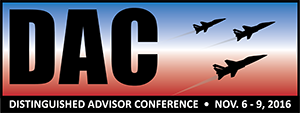Last updated: December 15 2015
Fiduciary Duty: A Renewed Focus in High-Value Practices

How can you be a better steward of your clients’ wealth? How can you communicate effectively to them your role as a financial fiduciary? The trend in the financial industry is towards greater transparency as the value of advice trumps a transaction-based service. But to create a more powerful value proposition for your advisory practice in 2016, you need to refocus on your fiduciary duty.
This according to Blaine Aikin, Chief Executive Officer of fi360, and a recognized thought-leader in the field of financial advice and fiduciary responsibility, who recently spoke at the Distinguished Advisor Conference in Puerto Vallarta. Blaine underscored that fiduciary responsibility, one of the oldest concepts in law and a key component of unparalleled professionalism, is inherent in your role as an advisor.
Drawing on his passion for preserving America’s forests, Aikin explained that creating a culture of fiduciary responsibility in your business is not only in the best interest of your clients, but also the future generations of their family. Just as clear-cutting a forest does extensive, long-term damage to the ecosystem, so does poor stewardship of a client’s wealth lead to financial and familial damage that can extend through multiple generations, ultimately damaging the financial services ecosystem.
 |
On the other hand, good stewardship creates a healthy environment not only in the present, but a sustainable woodland where diversity, responsible harvesting, and planning for the big picture mean that the ecosystem will be healthy and thrive long into the future.
Similarly, acting in the best interests of your clients, by being a more responsible steward of their entire family’s wealth, builds financial sustainability—it’s an ongoing process that goes beyond the individuals and extends through generations.
In this increased environment of professionalism, the standards of conduct for advisors are constantly being raised. Making the right decisions with your clients over the long term requires strategy, process and planning and all of that requires technical expertise, research and much more time and reflection in making recommendations based on client concerns.
 |
Additional Educational Resources: Three excellent courses from Knowledge Bureau that speak to strategy and process include: Elements of Real Wealth Management Course, Advising Family Businesses and Fundamentals of Succession Planning.
|
Refer a Friend |
Research |
Calculators |
Course Trials |
 |
 |
 |
 |




